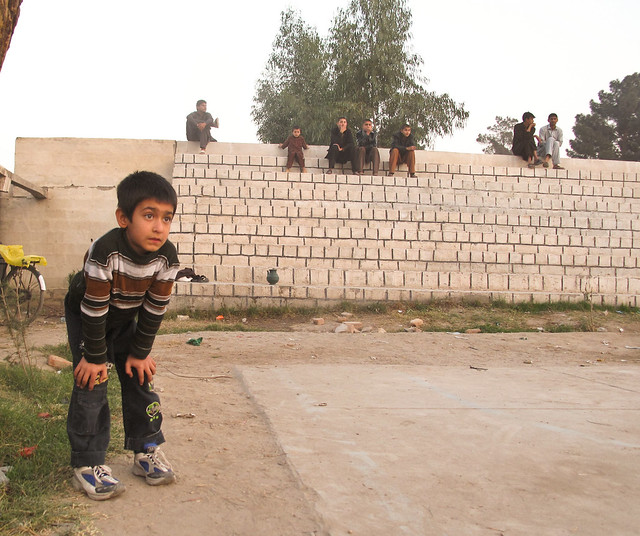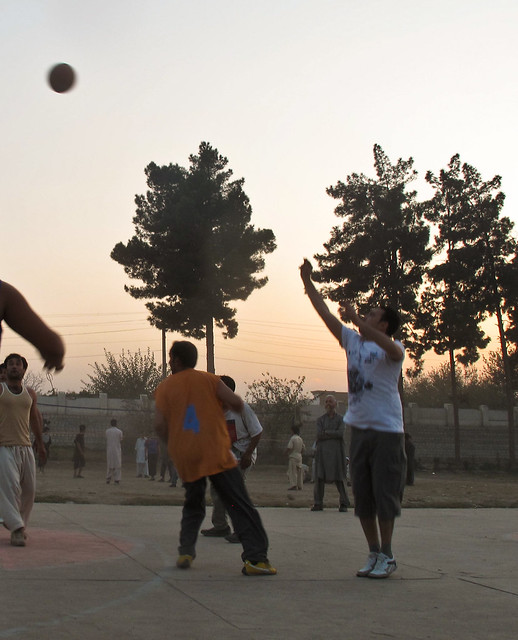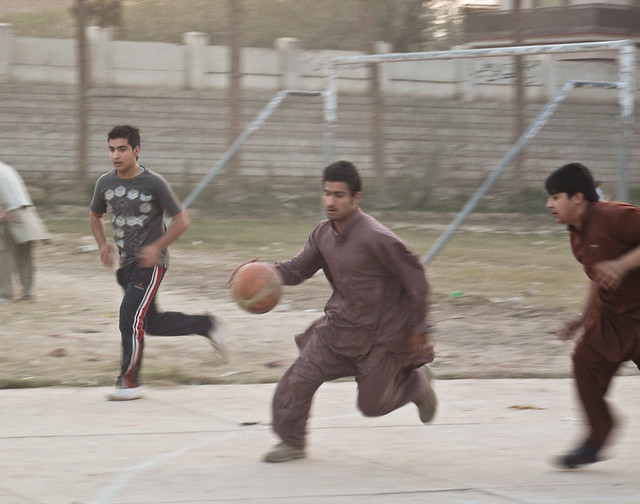First Graduates of Shaheed Mirranay Education Center
Shaheed Mirranay computer and English language center was built in April 2011. It’s located in Southwest of Jalalabad city- one hour drive from Jalalabad city. Together with my team I set up it’s solar power system and the computer lab. We installed five computers and a printer, four solar panels with a power inverter, and four car batteries. The solar power system generated enough power to run the five energy efficient laptops for six months several hours everyday (After six months, two of the four batteries stopped working now and they are planning to replace them soon).
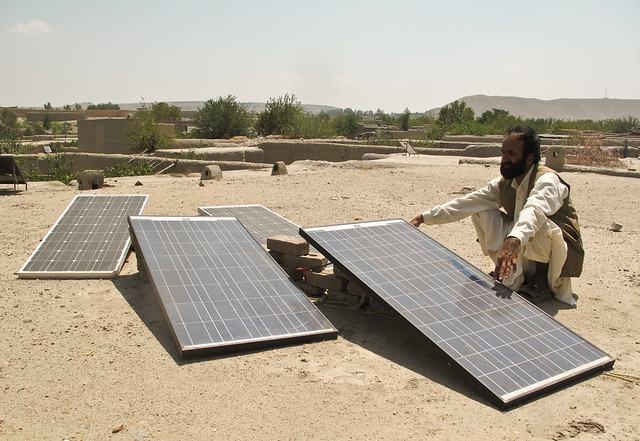

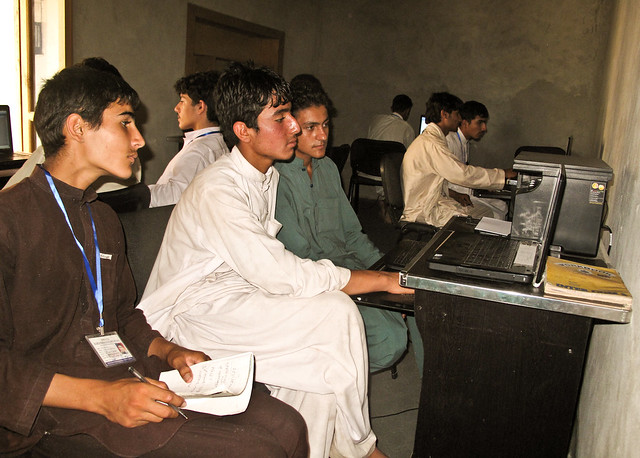
The training center recruited many potential students and selected 317 of them in 18 different level computer and English language classes when it started. With four English language teachers and two computer trainers it is open 6 days a week for 8 hours each day. The center has a general manager and two guards. Seven months after its start, Shaheed Mirranay English language and computer center is awarding certificates to its 300 graduates: 110 students will be awarded certificates in basic computer skills and 190 students will receive certificates in intermediate English language use. I was visiting the training center last week and all the teachers were busy putting finishing touches to their students’ certificates. They’ve already started recruiting new students for their upcoming classes.

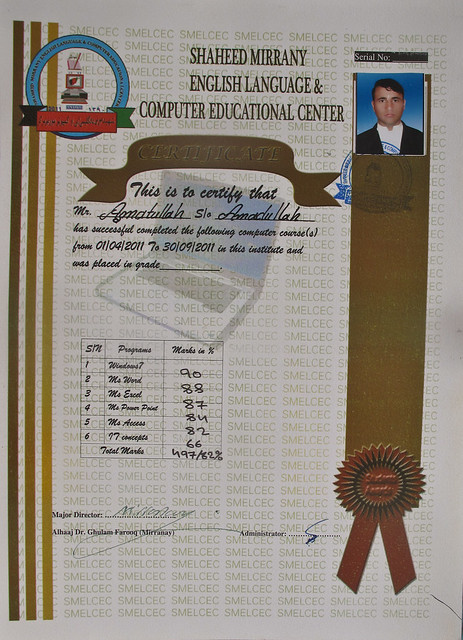
When I was visiting this center in September, all these little kids seemed very sad because they had been told that the center would close down that month because there were no more funds for it. However, they were able to keep it running and keep it funded somehow. This time, the students looked way happier. They didn’t have to worry about the closure.
Compared to the rest of Nangarhar province, Khogyani has the most Taliban and insurgents. Going there, I drove through several bomb craters on the road that had targeted International Security Assistance Force (ISAF) and Afghan National Army (ANA). Taliban and other insurgents exploit teenagers and little children by giving them a bomb to plant on the road. They give them $15 for each bomb they plant. The day before my visit, two US army tanks had been blown up by an Improvised Explosive Device (IED) on the road in the nearby area of Mimla. Two teenagers that were planting a bomb on the road were killed in an airstrike that day.These kids don’t know anything about bombs and ammunition. Sometimes, they get killed due to premature detonation.
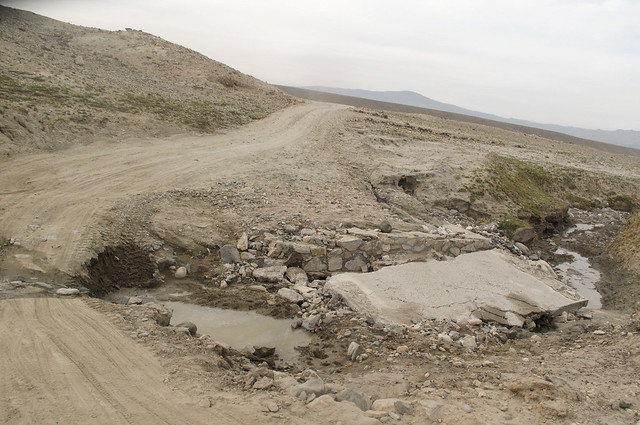
Besides insurgency, people also grow poppy on a very large scale in this area. Under the Taliban, their number one income was from growing poppy. It’s still grown here. When I was there, I saw that the district prison was full of detainees who had been captured for growing poppy or for their involvement in other insurgent activities. The district government was redirecting detainees to other prisons in the country.
 Photo credit: Najib Bismil
Photo credit: Najib Bismil
In an area like this which is infested with the Taliban and other insurgent groups, an educational institute plays a significant role in educating the next generation and providing them with the right tools and skills needed to serve their country. They will have a brighter future than that of their ancestors, a decent job and a more sustainable income to support their families. When I was visiting this education center two months ago, one of the students told me, “I want to learn computer and English language to work with an international organization and help build my country.”

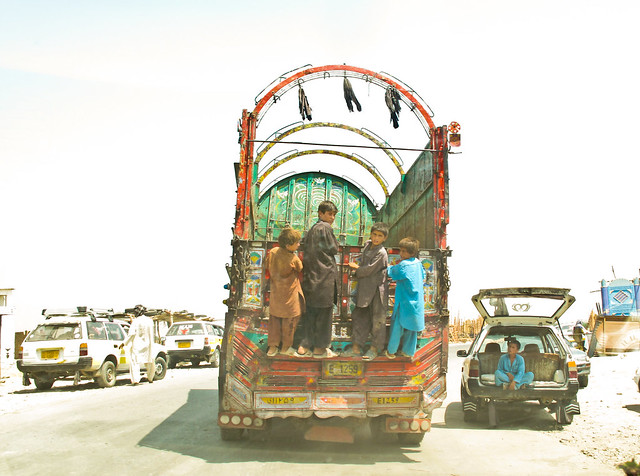
Be in Jail for 12 Years or Marry Your Rapist
Afghan woman jailed for being a rape victim offered release if she MARRIES her attacker
Gulnaz was convicted of adultery because she had sex outside of marriage by being raped. After falling pregnant by her attacker, she and the baby were jailed for 12 years. She has been given the choice to marry her rapist and be freed from jail
Read the full story here.
What Cripples Afghanistan’s Economy?
A world bank report came out yesterday that says depending on security the economy of Afghanistan could face a complete collapse beyond 2014. More than 90 per cent of our national budget comes from foreign donations. The world bank report in PDF: Transition in Afghanistan: Looking Beyond 2014. Income per person in Afghanistan is $528 a year. Josie Bassinette, the acting director of the World Bank says this figure conceals pockets of worse poverty because aid money is not divided evenly across the country. A lot of money goes into unstable areas and bypassing the more peaceful ones. That means a huge amount of that aid money goes into security. About 10 per cent of the total budget of the country comes from import export tax, etc.
What happens to our revenue?
I know someone who works in Nangarhar customs office. He turned down a very good job offer from an international business company in Kabul to come and work in the customs office. The company offered him $3000 US dollars of salary per month and some other incentives. The customs officer makes $1600 everyday. The way he takes bribe is very modern. He uses his bank to transfer money so that he doesn’t get caught. There is tax on the goods that are imported into Afghanistan. For example, if a businessman imports 200 trucks of Chinese televisions and each truck contains 300, the customs officer will tax him for 150 televisions per truck and then ask him to pay the tax for 100 televisions per truck directly to him (meaning transfer it to his bank account) and the businessman gets 50 televisions (per truck) into the country with no tax.
There is a price list that has prices of the different government positions. For one to get a customs office director’s position, especially in a frontier province like Nangarhar where there is a lot of import and some export, they usually pay multiple hundred thousand dollars in the ministry of commerce (sometimes there is bidding on this and whoever offers the highest bribe gets the position).
A while ago, the ministry of commerce hired and made special customs offices control committees. These committees are based in all those border provinces that make big transit ways. Their task is to monitor and report on corruption in these provincial offices. They are well-equipped and well-paid so that they will be honest in their job. The special corruption monitoring committees, at least in Nangarhar and Herat provinces, when saw the “tempting” money, teamed with the customs officers and they made a deal and started getting their cut. Before, tax for 150 televisions of each 300-television-truck was going to the middle men and the rest of the 150 was going to the government. These officers don’t want their original income to cut back. Instead, they tax even less goods per truck so that they can get the monitoring committees’ cut (maybe the tax from 100 items in each 300-item-truck goes the government, 100 to the customs officers, 50 to the committee, and the rest of the 50 items will is “waived” for the businessman). In all these customs offices are advanced computer-operated scanners that scan imported good for tax, etc. but again all of this is run by a human being who makes the final decision.
About a year ago, there was a training seminar abroad that the ministry wanted its employees from these key customs offices to go and attend so that they can learn advanced methods. Nobody wanted to go because depending on their position that meant $1600 loss everyday. When it’s the end of month, most of these officers don’t even go to the bank to get their official salary from the government (which is usually a few hundred dollars).
A job in the customs office is a big deal in our country. It’s the same as working in any other ministry of the government but people here say they have a lot of “Aayid” meaning “indirect income”. These people with a lot of Aayid usually have a very miserable life. Their kids cannot go out or play freely. They have a constant fear that their kids would be kidnapped. These kidnappers have marked them and are ready for any window of opportunity to attack.
Getting a National Identity Card in Jalalabad
Waiting for the Officers to Come
A couple of cousins and my aunt asked me to help them get national identity cards called Tazkira for them in Jalalabad. I wrote an application for them and went to Nangarhar Governor’s Office with them. Normally, most government offices should open for clients at 8:00AM and close at 4:00PM. We were there by 8:10AM expecting that the workers would be settled. I thought that it’s the governor’s office and it would be more organized and punctual. My cousins live outside Afghanistan and to their surprise, the governor’s office was closed. We stood in a line and within 40 minutes there were dozens of people in the line. It was past 9:00AM and still no worker of the Tazkira department had come. There, I saw one of the big officials of the governor’s office whom I’d worked with on a project. I inched my way across the crowd and said hello to him.
“Why are YOU waiting in the line?” He said. “Do you want to go first?” I am fine with the line but where are the workers? I said to him. Well, that’s something that I can’t help with. “Everyone who works here is a mutual friend or relative with the governor or another high official. If we say anything to them then we receive dozens of calls and complaints that we are not “good” friends or relatives.”
Finally, it was 9:30AM and a fancy Land Cruiser drove in. An armed guard opened the door of the car and Amir Saib, meaning the director, got out of the car and the guard closed the door back for him. The Amir Saib started chatting with his friends in front of his office. I went to Amir Saib and nicely asked him if he could help us. “Go to my deputy to finish the rest of the work and bring the final papers to me for my signature.” We went to his deputy who’d come a few minutes before him. I came back to Amir Saib with my paper to get it signed by him. He signed it while looking and talking with his friend. One could’ve easily gotten a property or money claim letter signed that time.
Population Registration Office
After getting getting the paper work finished from the governor’s office, we had to go to our original district governor’s office in order to verify and approve whether or not we really are from that area. The district governor referred us to our local community elder called the Malik. When I got out of the district governor’s office there I saw a big dude. Legally, he cannot verify or approve where we come from because neither he knows us nor is he our Malik. The signal for saying give me bribe and I will finish your work for you right here right now was, “kAr de band dey?”, meaning are you stuck and need help to finish it? I asked him, “how much?” Whatever you want, he said. Then I had my cousin to go his Malik in his original town and get the questions about them answered by him. He did so and when we came back to the district governor’s office to give my cousins their national ID cards as the Malik’s signature and stamp was the last step, no officer even talked to us because we didn’t do it in their way (giving them bribe and finishing it right there right then), we did it the “long” way. We were waiting inside the district governor’s office compound. For an hour, we had to put up with this police who was staring at my cousin non stop. Sometimes, it’s so annoying when I have a female friend/relative with me and we stop somewhere for a bit. Within minutes it becomes what my American colleague calls “national staring competition”.

They were telling us that we need to come back the following day, etc. etc. I knew that that was how they wanted to torture us for not having done what they wanted. Finally, I had to call a friend who knew somebody at the district governor’s office. He came and finished our work in less than 20 minutes. That’s how we got the national identity cards and how the national staring competition ended.
Ali, the Shopkeeper
I was in Dara-e-Noor district of Nangarhar province with my mapping team last month. I met Ali. He is about 4 years old boy with light skin, blue eyes, and blond hair. Ali’s father is a shopkeeper running a little convenience store in this very remote area in the middle of mountains.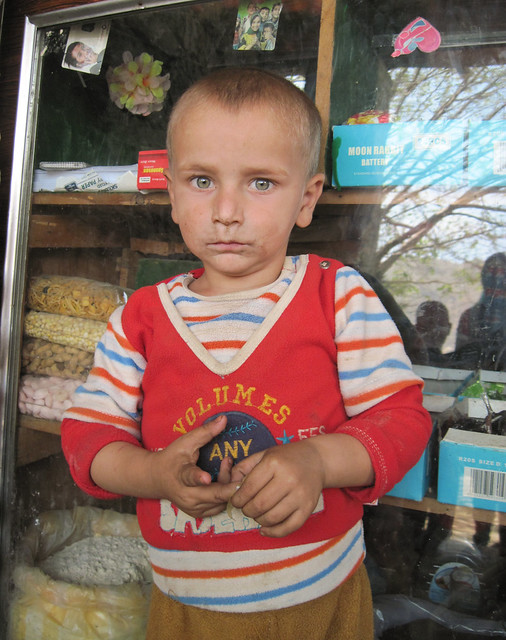 Ali keeps the shop and sells some small items that he knows the prices of when his father goes to Jalalabad for replenishing the store. That’s how Ali helps with their little family business. I asked Ali if he wants to go to school. “My father won’t buy me a backpack”, he said. Ali’s father said that nobody had had any education in their family but he will let him go to school. I gave Ali his first lesson to count to ten and I promised him to bring him a backpack next time I come to their village.
Ali keeps the shop and sells some small items that he knows the prices of when his father goes to Jalalabad for replenishing the store. That’s how Ali helps with their little family business. I asked Ali if he wants to go to school. “My father won’t buy me a backpack”, he said. Ali’s father said that nobody had had any education in their family but he will let him go to school. I gave Ali his first lesson to count to ten and I promised him to bring him a backpack next time I come to their village.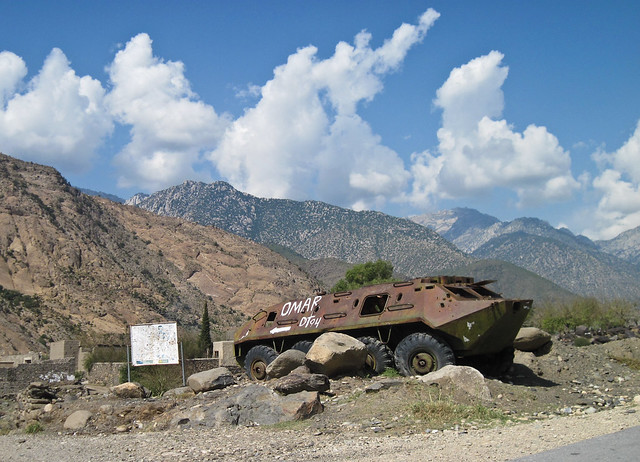
Interesting Twitter Fight: Taliban vs ISAF
@ABalkhi is Taliban’s Twitter handle and @ISAFMedia is ISAF’s. I am following both. They sometimes have Twitter fights. They are exchanging some serious words right now as I am typing and here is how the @ABalkhi started and then the @ISAFMedia’s response follows and I quote everything:
@ABalkhi: Article CSM:1000s Afghan mercenaries hired by CIA in Afghanstan.Commit outright human rights abuses(rape,robery,extra judicial killing etc)
Story confirmed by US diplomats, western officials, afghan authorities. Hired to fight Taliban and others
Recruits ‘cherry picked’ from regular ANA and trained by US Special forces at Camp Gecko
US tactic as withdraws is going “beyond traditional intelligence, military, and law enforcement functions.â€
These kinds of units who are trained by US military, funded by CIA fits the bill perfectly
These units which are shadowy and unaccountable to anyone, only answer to CIA
Repeatedly commit extra judicial killing, rape, torture, larceny is being directly bankrolled by CIA and US military via US taxpayers
Matt (Green Beret captian) says: must work with these units to beat Taliban even though behavior insults ‘western sensibilities’
Matt (Green Beret captian):No standard to begin with. No rule of law. taliban not that bad and Afghan farmer not innocent civilian
So ISAF admits hiring mercenaries to commit mass murder, rape, torture and does not consider farmers as innocent civilians. Great JOB!!!
i wonder why not many journalists and even the UN talk much about such issues and the dire situation it has created for the Afghans
link to full story http://www.csmonitor.com/World/Asia-South-Central/2011/1116/After-the-US-pulls-out-will-CIA-rely-more-on-Afghan-mercenaries
ISAF Twitter handle(@ISAFMedia) then responds with: @abalkhi We don’t hire mercs to commit murder/rape/torture. OTOH … that seems to be a core competency among Taliban
@ABalkhi replies: @ISAFmedia your officials admitted to it dumb dumb. and how can you talk about taliban when u cut fingers etc and use them as throphies
@ISAFMedia: @abalkhi Dumb dumb? How the dialogue elevates. Look: Nobody takes you seriously. Everything you type is wrong. Just. Stop.
@ABalkhi: @ISAFmedia Thats why they picked you for this job. If I wasnt here, you wouldnt have a job
@ISAFMedia: @abalkhi You’re just a fun sideshow. How many tanks did you blow up today. (I have the actual number if you lose count.)
Unite or Perish

Ironically, on the barrel of this tank it say, “Unite or else we’ll perish.” People say a lot of things. Our politicians spend hours when they are on the stage giving talks but there is very little action. If we did 40% of what we say we wouldn’t be in the bad condition that we are today. When I listen to candidates talking to people during their election campaigns it almost makes one believe that Afghanistan will be like a European country in their four years period.


Difference between Wilf and a FATA Child

“The West must see the death of a FATA child the same way they see my 3‑year-old son Wilf.” Said Clive Stanford Smith, the legal director of the UK-based non-profit, Reprieve in Waziristan Grand Jirga Islamabad, Pakistan last month.




